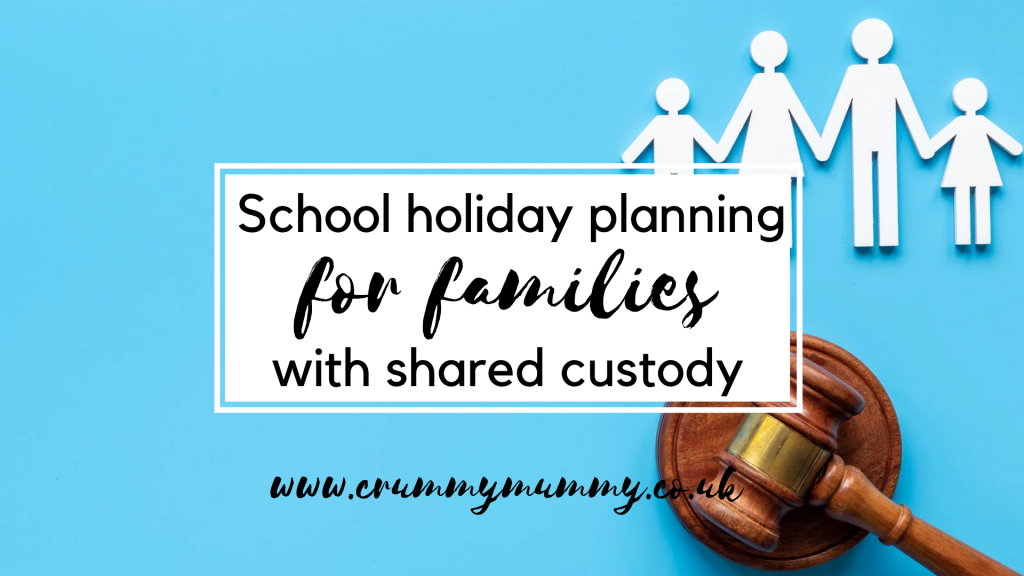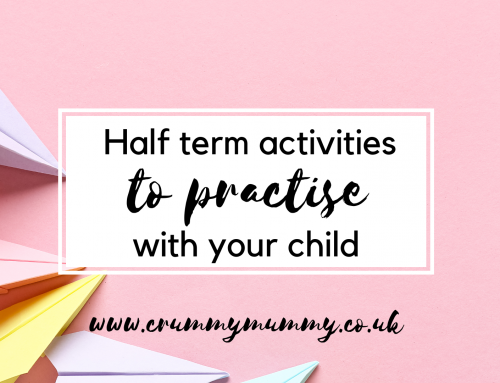School holidays often bring joy and anticipation for children, but can present logistical and emotional challenges for separated parents.
Balancing work commitments, childcare, and fair time with both parents requires thoughtful planning.

For families managing shared custody, holiday periods disrupt established routines, demanding extra coordination and communication. Planning and maintaining flexibility are key to ensuring children feel secure and cared for during these breaks.
This post may contain affiliate links. This means if you buy something after clicking on a link, I’ll earn a few pennies to help me keep creating posts like this, at no extra cost to you!
Early discussions about school holiday arrangements help parents set clear expectations and avoid unnecessary conflict. By focusing on collaboration and the wellbeing of their children, separated families can navigate school breaks successfully while still creating enjoyable experiences for everyone.
School holiday planning for families with shared custody
The challenges of holiday planning in shared custody arrangements
For children, school holidays can sometimes be confusing. They might feel excited about time off, but uncertain about how their days will be divided between parents. Feelings of guilt or sadness may arise, particularly around special occasions like birthdays or festive celebrations. Parents face practical difficulties when holidays do not align neatly with work schedules, forcing them to juggle annual leave or childcare.
Conflicts can occur when both parents want to spend specific holidays with their children, or when extended family members wish to be included. Establishing clear communication early helps avoid misunderstandings. Experienced family law solicitors can provide valuable guidance in interpreting existing court orders or agreements, helping families reach fair arrangements while prioritising the children’s best interests.
When parents understand the potential challenges, they can move towards structured planning that reduces stress and builds predictability for everyone involved.

Creating a fair & flexible holiday schedule
Developing a holiday schedule in advance ensures fairness and consistency. Parents who begin discussions several months before school holidays have more time to negotiate calmly and adjust to changes. Every family is different; some may alternate holidays annually, while others share specific days. The goal is to agree on an arrangement that balances time with both parents and accommodates each family’s circumstances.
Flexibility is essential. Unexpected situations such as illness or last-minute work commitments can arise. Having a plan for exchanging days or offering the other parent the first choice for additional time helps reduce conflict. When both parents demonstrate cooperation, children see that their needs come first.
Encouraging children to share their preferences can also strengthen their sense of stability. Allowing them to participate in planning, where appropriate, makes the process feel inclusive and fosters a positive attitude toward spending time with each parent.
Communication strategies for successful co-parenting during holidays
Good communication is the foundation of effective shared parenting, particularly during school breaks. Using shared digital calendars helps both parents stay informed about pick-up times, travel plans, and events. These tools can prevent confusion and provide an easy reference for any updates.
Parents should agree on how they will communicate, whether through messaging apps or email, and how much notice is needed to request changes. Setting these boundaries early prevents disputes later. It is equally important to communicate with extended family members, making sure everyone understands the arrangements to avoid pressure on children or parents.
Documenting decisions in writing after discussions can help prevent disagreements about what was agreed upon. A short confirmation message outlining the key details, such as dates and exchange times, can be a proper record while keeping communication respectful and transparent.

When to involve children in holiday planning
Children benefit from being included in planning discussions in an age-appropriate way. Young children may only need simple explanations, while older children and teenagers may want some input. A visual calendar can help them understand when they will be with each parent and reduce anxiety about upcoming transitions.
Children should never be asked to choose between parents or act as messengers. Instead, both parents should encourage open expression of feelings in a supportive environment. Watching for signs of stress, such as changes in sleep or behaviour, allows parents to step in early and make adjustments that ease tension.
Legal considerations for holiday travel with children
Holiday travel often adds an extra complexity for families with shared custody. Parents should review existing court orders or parenting plans to confirm what they can do, especially when travel extends beyond the usual living arrangements. Some agreements require sharing detailed itineraries or obtaining consent for longer trips.
For travel within the UK, providing details such as accommodation addresses and emergency contact information helps maintain transparency and trust. Both parents usually need to provide written consent for international trips, even when one parent has primary custody. This protects the travelling parent and the child by preventing misunderstandings or disputes.
If parents disagree about travel plans, seeking advice from family law solicitors can help clarify legal rights and obligations. Courts and mediators generally focus on the child’s welfare, so presenting well-prepared travel details and open communication improves the likelihood of reaching a suitable solution without conflict.

Creating new holiday traditions after separation
After separation, holidays often look different. Adjusting expectations and embracing change can make them enjoyable for everyone. Maintaining some familiar traditions offers comfort, while introducing new ones helps create fresh, positive memories. For instance, parents might celebrate special days on alternative dates or find new ways to enjoy shared interests.
Clear communication about gifts and celebrations prevents competition or confusion. Agreeing on budgets and coordinating presents avoids misunderstandings and helps maintain balance. Parents can share plans by message or email, ensuring both households are on the same page.
Children can feel sad about moving between homes during holidays, but reassurance from both parents can ease the transition. Encouraging them to look forward to time with each parent helps foster emotional stability and confidence. Over time, consistent cooperation builds trust and allows new family traditions to flourish.
Moving forward: creating positive experiences together
Planning and maintaining flexibility are the cornerstones of successful co-parenting during school holidays. Early discussions, clear communication, and mutual respect ensure that parents and children enjoy meaningful time together. When needed, seeking guidance from family law professionals can clarify and prevent disputes. By focusing on what truly matters, the happiness and stability of the children, families can turn holiday periods into opportunities for connection, cooperation, and lasting memories.
This is a collaborative post.

























Leave A Comment